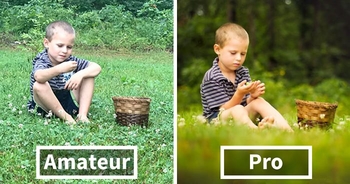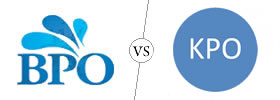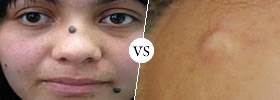Difference Between Professional and Amateur
Key Difference: The primary difference between a Professional and an Amateur is the difference in their thought process, behavior, attitude and approach towards life. Another key difference is that of payment of their work and also their training and educational qualification.
Professional:
 A professional is defined as:
A professional is defined as:
1) Relating to or belonging to a profession.
2) Worthy of or appropriate for a profession, competent or skillful.
3) A professional is nothing but a trained person with formal education and qualification who is paid much better than an amateur and generally all the services given are paid back. Professionals are also called for advertising or endorsing a product as they are widely recognized in their field of work like for example Roger Federer, a professional Tennis player endorses Rolex watch brand.
Amateur:
The term 'amateur' may have had its roots in the ancient Greek philosophy of having amateur athletes compete in the Olympics. The word has origin in the late 18th century: from French, from Italian amatore and from Latin amator 'lover' , from 'amare' to love as given in oxforddictionary.com. Amateur , a noun is also defined in other ways as:
-
A person who engages in a pursuit, especially a sport, on an unpaid basis.
-
A person who is less skillful in a particular activity.
Amateurism can be seen both ways negative and positive. Since, they do not have formal training, some amateurs work may be considered as a lower standard or less ability to work than as compared to a professional in that particular field. In other way , an amateur may be in a position to approach the situation open-minded and who wants to pursue the profession out of pure interest.
Following are some differences between a Professional and an Amateur in their behavior, approach towards life and some particular habits:
Schedule and Practice: Professionals are the ones who maintain a strict schedule and stick by their routine and practice it almost daily even if they do not feel like it. Whereas, amateurs are the ones who wait for inspiration to  strike them and so that can start with their work or take action towards their goals. Professionals don't let their emotions dictate their actions and intentionally stick to the routine come what may ever.
strike them and so that can start with their work or take action towards their goals. Professionals don't let their emotions dictate their actions and intentionally stick to the routine come what may ever.
Focus: Professionals focus on habits and routines and treat success like marathon and not rather like a sprint. Professionals practice the art of developing the routine that will help them to achieve their goals as a by-product. While, amateurs are obsessed with the outcome and try to seek instant gratification of quick results and try to look at success like a sprint. Amateurs struggle with resistance and procrastination because of their intense focus on the end result.
Achievement: Professionals understand that their achievement is just the peak of the iceberg and can not stop, but rather focus on continuous growth and finding new ways to improve their weak points or where they lack. Amateurs strive to achieve success by just finishing the marathon and stops as soon as they have reached their finished line. Amateurs lack consistency and the practice is less.
Failure: Professional treat failure as a part of the growth and understand it is and inevitable part to reach success. They try to absorb the relevant information and feedback, discarding the irrelevant criticism. While amateurs try to avoid failure at all costs, fearing criticism and worry more about what image and impression they have about them in-front of their peers. Professional grow from failure treating criticism a healthy insight, but amateurs lack mental toughness and give up at the first point of facing tough challenges and adversity.
Objectives or Opinions: Professionals do not rely on opinions but rather use objectives for decision-making process. Professionals asks the widely held assumptions and challenges the old-practice. Amateurs seek opinions and are easily influenced by the majority best practices. Professionals do not make decisions because they believe they are right like amateurs believe but their objectivity helps them to prevent from taking bad decisions.
Comparison between Professionals and Amateurs
|
Particulars |
Professionals |
Amateurs |
|
Meaning |
Relating or belonging to a profession by following certain code of conduct and who has pursued formal training and education qualification in that particular field of profession. |
A person who engages in a pursuit, generally out of interest, passion are mostly unpaid basis or underpaid. |
|
Achievement |
Understands initial achievement as just the tip of iceberg. |
Stops as soon as they reach the peak of success. |
|
Priority |
Process is the priority over reaching the goal |
Goal is the only priority. |
|
Focus |
Focus is long term and focuses on getting the best outcomes. |
Focus is short term and focuses on being right. |
|
Identifies |
Knows their strength and finds people who are strong, when that individual is weak. |
Identifies weakness to improve it further. |
|
Feedback |
Sees criticism and feedback as thoughtful insight of their weak spots. |
Sees feedback and coaching as someone criticizing them. |
|
Performance |
Values consistent performance |
Value isolated performance |
|
Trouble |
Assumes trouble as a part of growth and failure as path to success. |
Assumes trouble as a failure |
|
Outcomes |
Understands when outcomes is the result of luck. |
Thinks good outcomes are result of brilliance. |
|
Responsibility |
Makes decisions as an individuals and accepts the responsibility. |
Makes decision in committee or meetings so that there is no complete responsibility on that individual. |
|
Payment |
Are paid very well and also know about what should be cost of their service as per their experience. |
An amateur would be paid a little less as compared to a professional and would sometimes also hesitate in asking the right amount to be paid for their service. |
Image Courtesy: Letsintern.com, Boredpanda.com









Add new comment